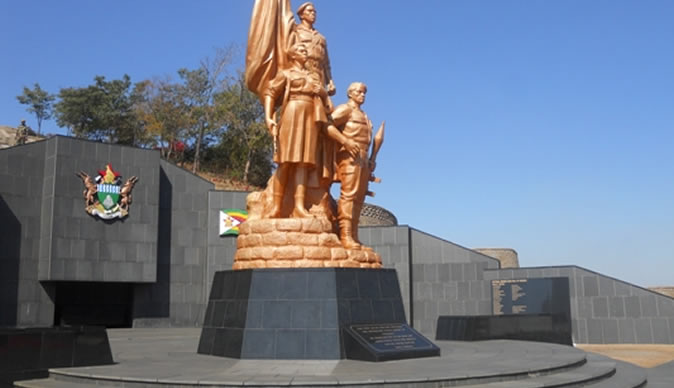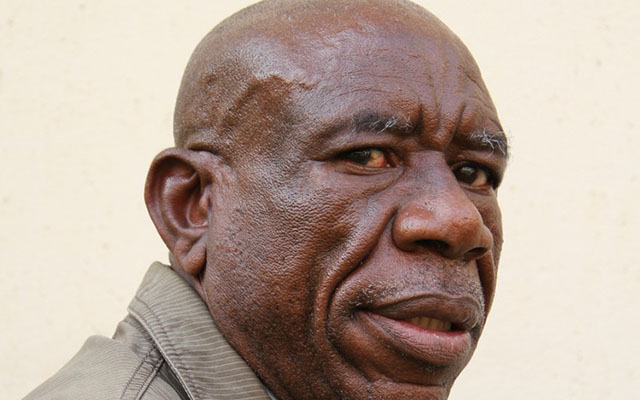Editorial Comment: Zimbabwe burying more than bodies

THE months of April and August are turning out to be critical historical markers on our annual calendar. Recommendations have in the past been made that April be declared a Zimbabwe history month, for it has many landmarks of major historical events both in the pre-and post-colonial era.
Symbolic as they might be, the past two years have proven that when it comes to April and August, “death keeps no calendar”, and as Ben Franklin also said, it does not take bribes.
The past fortnight has been heavy-going for the nation as stalwarts, giants and devotees of our liberation struggle passed on.
Event watchers would have also noted that this is now happening with rapid frequency as never before, as mourners gather at provincial heroes acres across the country every now and again.
On National Heroes Day, national heroine and former Minister of State for Masvingo Provincial Affairs Senator Shuvai Ben Mahofa passed on, followed a few days later by Cde George Rutanhire, who has since been declared a national hero.
The demise of the two icons was followed on Tuesday by another gallant woman Amai Maud Muzenda, widow of national hero and former Vice President Cde Simon Muzenda.
She has also been declared a national heroine.
The dark cloud that has hovered around the nation this month is no different from what we witnessed in April 2016 when Cdes Victoria Chitepo, Vivian Mwashita, Alexander Kanengoni and Chinhamo Chinamano passed on within days of each other.
Cdes Chitepo and Mwashita made history when they were interred on the same day at the National Heroes Acre, just like Amai Muzenda and Cde Rutanhire will also be buried on the same day tomorrow.
Cumulatively, these heroes and heroines of the liberation struggle (First and Second Chimurenga) have hundreds of years of self-service and sacrifice for the freedom and well-being of Zimbabwe.
Their names will remain immortal for between their deaths and the future are lessons we all must learn. They put others first before themselves, and the “me, myself, I” spirit was not a part of most of them, for all they knew was to give their best to the nation.
But, in the same vein, the inevitable is that these heroes and heroines are untapped reservoirs of primary data on the history of our country, and the majority of them are departing with very little and/or none of that information captured in any format whatsoever.
This state of affairs is very sad, for with the death of each one of them we are burying whole libraries filled with unique information sources.
We are burying them with their full stories, and that way, our history is being lost forever. The question we have to ask ourselves is: With this poverty of information, what point of reference will future generations use? Do they have to read, watch and listen to the revisionist history by the enemy forces we defeated, for we know that Rhodesians are writing that history from their own point of view?
The clarion call made by Cde Rutanhire in a 2012 interview we carried in yesterday’s edition speaks volumes of why it is important to refocus our thinking and create local content using these original historical sources. Said Cde Rutanhire, “The youths should know that those who died also wanted to be alive in a free Zimbabwe. Never, ever forget the liberation struggle. The white man will try to come back in different forms, including hiding behind some blacks . . . The country’s history should be taught from crèche up to university. The youths should never be ashamed of talking about their country’s history.”
But do we have those historical sources, by and from our own people?
While we applaud previous initiatives by Government and some stakeholders in “capturing this fading history”, we should, now than ever before, ensure that we put together adequate financial and material resources to make sure that this exercise takes off in a structured manner.
With so many tertiary institutions and other well-qualified ethnographers, this is possible.
It should not also be forgotten that these people apart from being history makers, are also owners of their narratives. Like artists and inventors, they should derive benefits from the content they give out. Their life stories are also their intellectual property rights.
All they need is someone with the knowledge and expertise to package the stories so that they can be sold on various platforms, to their benefit as well.
For too long, we have blamed them for not telling their stories, forgetting that some of them do not even know where to start from, let alone acquiring the resources to do it.








Comments